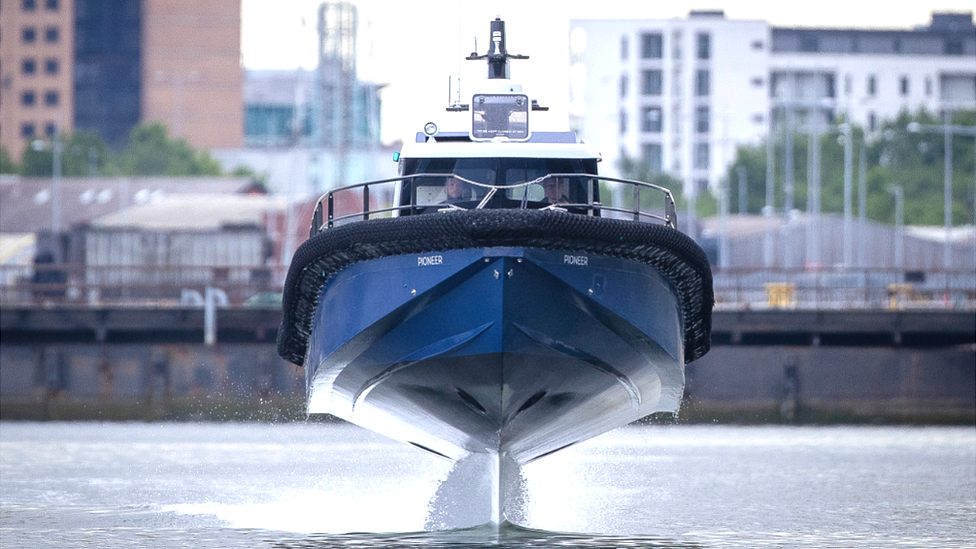Lough Erne: Eco-boat project aims to spark climate action
- Published
Lough Erne: Solar-powered boat arrives in County Fermnagh
A solar-powered boat has arrived on Lough Erne in County Fermanagh after a four-month journey along Ireland's inland waterways.
The Mayfly has travelled from Limerick to Enniskillen as part of a project highlighting environmental issues.
The Eco Showboat Expedition has been undertaken by two architects turned artists Anne Cleary and Denis Connolly.
The couple said it is the first solar-powered, zero carbon boat to make the journey.
As well as the environmental benefits, they told BBC News NI there are other advantages to travelling using only the power of the sun.
"It's calm, it's quiet, we don't have a trail of black smoke behind us, we don't have any unpleasant smells, so it's a very relaxing way to travel", said Anne.
"We're not leaving any pollution on the waterways," Denis added.
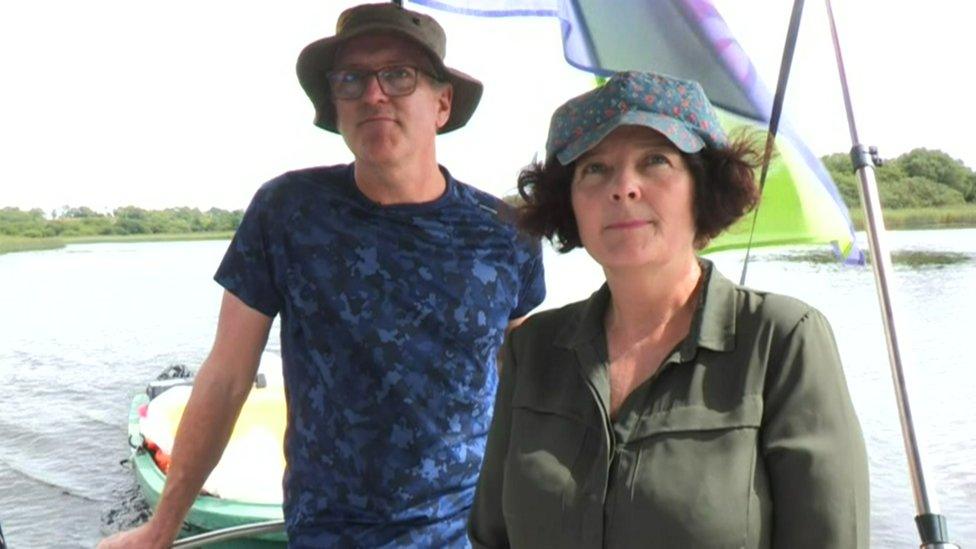
Denis Connolly and Anne Cleary said there are many benefits of travelling carbon neutral
It is also a much cheaper alternative to diesel.
The vessel has an array of solar panels along the roof as well as a windmill which is designed to charge a set of batteries to power the engine.
"The windmill, unless it's going around once a second, doesn't really give us any energy but it looks very colourful and it moves and it's kind of a beacon that brings people over," said Denis.
"They're less likely to notice the solar panels which are doing a lot of work."
Anne said they've been surprised by how many people are interested in solar power.
"When we pull in at different moorings lots of people wander along and ask us questions and they're all very, very concerned about what's happening with the current context with the cost of diesel."
The journey has also given them an insight into the environmental issues facing waterways.
Anne and Denis have spoken to farmers about their concerns and the challenges they face in changing the way they farm the land.
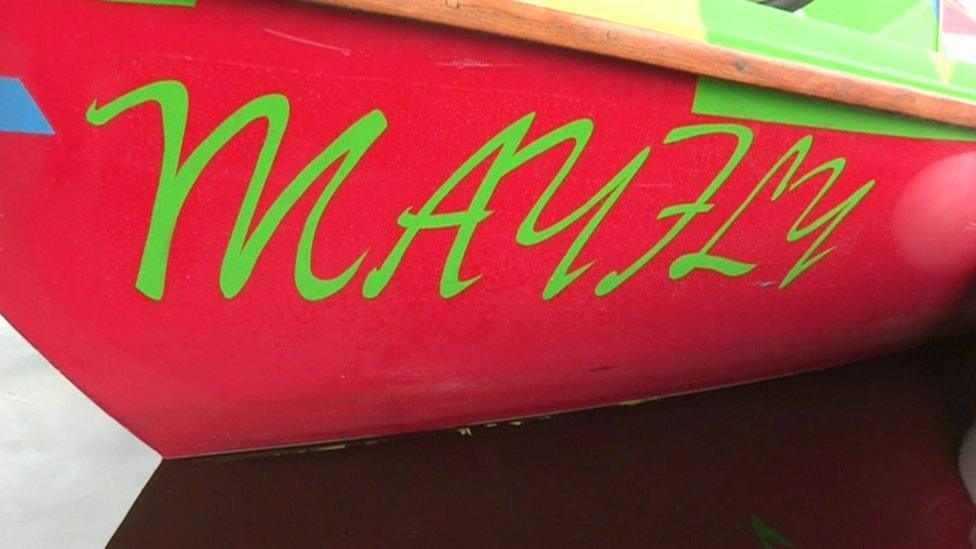
The Mayfly is the first carbon neutral, solar-powered boat to make the journey
In the midlands they said they found a lot of people who are unhappy at the recent Irish government restrictions on selling turf.
Denis said "there's all sorts of problems coming from farms, from industry, from houses.
"One of the big problems we've been told about recently is toxic particles from car tyres which get washed into the waterways."
Along their journey they have worked with communities, scientists and artists to raise awareness of environmental issues and discuss possible solutions.
A marine biologist has been collecting samples to identify invertebrates which provide an indication of water quality.
Every weekend they stop and invite the public to come along to a pop-up shelter made from 30 striped umbrellas dubbed the pangolin pavilion.
"Along the way we've worked with 20 different artists and we brought in scientists as well," Anne explains.
"People come along and we chat and we show films and we talk about biodiversity and ecology and all sorts of other subjects related to climate change.
"The idea is that we bring people together around about those subjects, creative people and people with great knowledge of scientific issues of biodiversity and make conversations.
"Our hope is that ideas will be sparked so that people will start to think about things and maybe get ideas and then actually take action and start to find innovative ways to deal with all these different problems that we are facing."
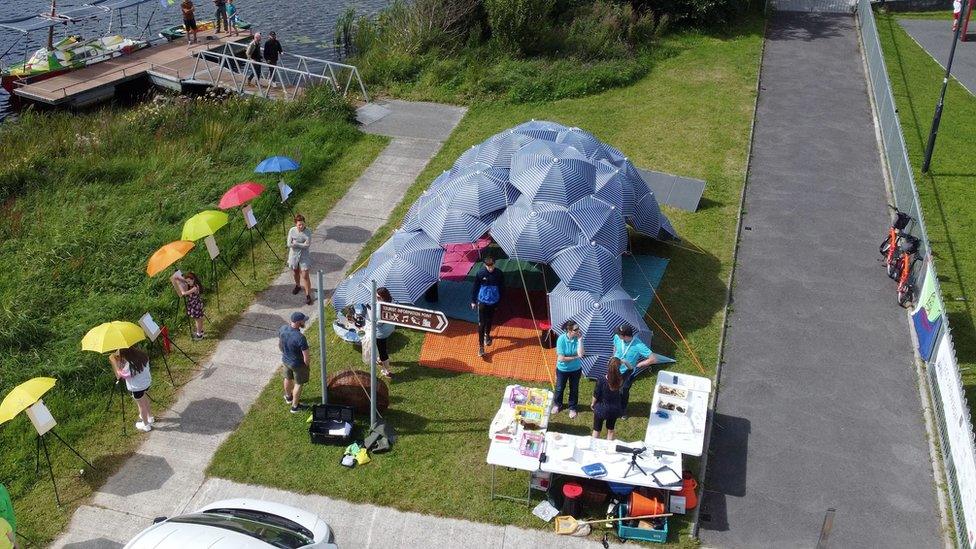
The organisers of the project erect an umbrella tent
Anne believes that creativity is key to addressing climate change issues.
"We really need to treat this through our imagination, it's a really big problem, many big problems actually, and we need to start using our imaginations to come around to ways of addressing it and dealing with it."
The journey has not all been doom and gloom about the climate emergency - their brightly coloured vessel has proved to be a hit with the local wildlife.
"We're having a really interesting time meeting dragonflies and swallows and all sorts of insects and birds," said Anne.
"Even geese for some reason they seem to be attracted to the colour," added Denis. "I don't know why the geese find it attractive."
As they near the end of their journey Anne and Denis are already planning their next project, converting an historic 30 tonne barge to solar power.
Related topics
- Published30 December 2017
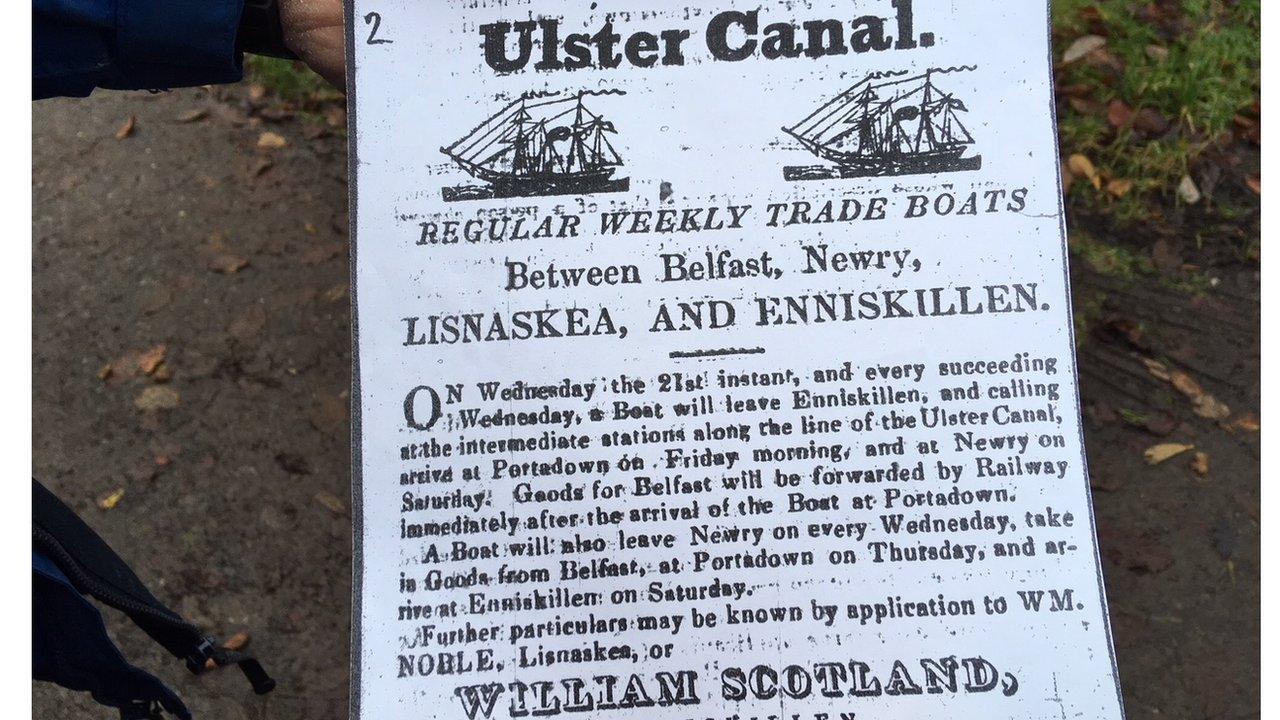
- Published9 June 2022
